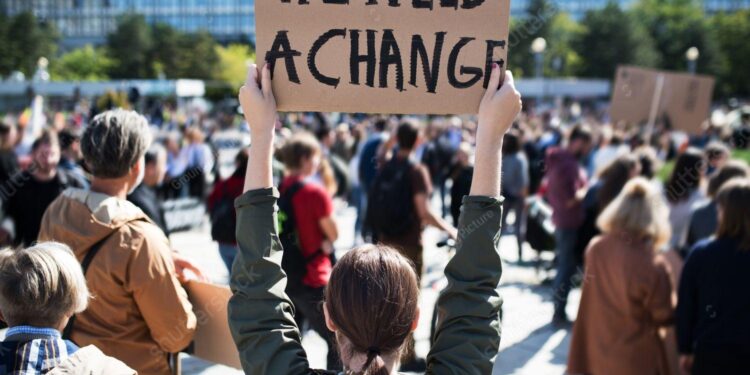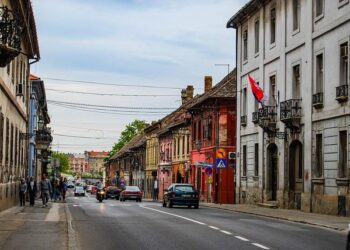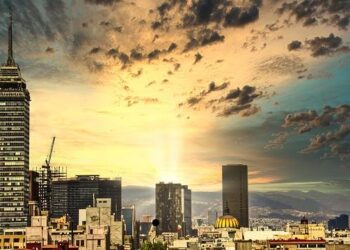In a significant display of public dissent, thousands of students in Serbia took to the streets today to demand an end to President Aleksandar VuÄŤić’s rule, Reuters reports. The protests, marked by passionate speeches and widespread participation, underscore growing frustration among the younger generation over political corruption, economic challenges, and restrictions on freedoms. As the movement gains momentum, it reflects a broader call for democratic reforms and a shift in the country’s political landscape.
Student Protesters Mobilize in Serbia Calling for the End of VuÄŤić’s Rule
Thousands of students took to the streets in multiple Serbian cities earlier today, uniting under a shared demand for significant political changes. Demonstrators voiced their frustration with President Aleksandar VuÄŤić’s administration, accusing it of corruption, censorship, and undermining democratic institutions. Organizers emphasized the need for transparent governance and free media, warning that continued authoritarian practices threaten Serbia’s progress and its aspirations toward European integration.
Key points from the protest included:
- Calls for early elections and resignation of key government officials
- Criticism of media control and suppression of dissenting voices
- Demands for improved educational policies and student rights
- A younger generation’s insistence on change and accountability
| City | Participants | Highlights |
|---|---|---|
| Belgrade | 5,000+ | Main rally, speeches by student leaders |
| Novi Sad | 2,000 | March towards the city hall |
| Niš | 1,500 | Demands for education reform |
Examining the Political Climate Driving Widespread Discontent Among Serbian Youth
The widespread unrest among Serbian youth stems from long-standing grievances related to political stagnation, economic uncertainty, and perceived authoritarian tendencies under President Aleksandar VuÄŤić’s administration. Many young protesters voice concerns over limited job opportunities, rampant corruption, and a lack of transparency in governance, which they argue has led to an erosion of democratic institutions. Their demands focus on immediate political reforms, including fair media representation, genuine electoral competition, and enhanced protection of civil liberties. This growing movement is emblematic of a broader frustration with the political elite, whom many feel have failed to address the challenges facing a generation caught between economic precarity and political marginalization.
The student protests also highlight key issues fuelling discontent:
- Suppression of independent media voices and increased state control
- Economic policies that limit youth employment and social mobility
- Lack of accountability for corruption scandals involving government officials
- Concerns over the politicization of educational institutions and suppression of academic freedom
These factors combine to create a volatile political atmosphere, with many young Serbians hoping that sustained activism will pressure the ruling government toward meaningful change. As tensions escalate, the government’s response to these demonstrations will play a crucial role in shaping Serbia’s political trajectory in the near future.
| Key Issues | Impact on Youth |
|---|---|
| Media Control | Limits information diversity, stifles dissent |
| Unemployment | Drives migration, lowers morale |
| Corruption | Undermines trust in institutions |
| Academic Freedom | Restricts critical thinking and innovation |
Recommendations for Constructive Dialogue to Address Demands and Restore Stability
For meaningful progress, stakeholders must prioritize inclusive and transparent communication channels that allow all parties-the government, opposition, student representatives, and civil society-to voice concerns openly. Establishing neutral mediation platforms can foster trust, enabling negotiators to address grievances without the pressure of public escalation or political agenda interference. Ensuring regular dialogue sessions, both formal and informal, will create opportunities to break down misunderstandings and develop mutually agreeable solutions that reflect the public’s aspiration for democratic accountability.
The following measures are essential to stabilize the situation and promote constructive engagement:
- Guarantee freedom of peaceful assembly while preventing violence from all sides
- Implement independent oversight to monitor dialogue progress and maintain transparency
- Facilitate youth participation in policymaking to directly address student concerns
- Commit to concrete timelines for reform proposals and government responses
| Stakeholder | Role in Dialogue | Key Responsibility |
|---|---|---|
| Government | Policy Reformer | Respond transparently to demands |
| Student Groups | Advocates | Represent diverse demands fairly |
| Mediators | Facilitators | Ensure equitable dialogue space |
| Civil Society | Watchdogs | Monitor and report on progress |
In Summary
As the demonstrations continue to unfold across Serbia, the calls for President VuÄŤić’s resignation reflect deep-seated frustrations within the country’s youth. Reuters’ coverage of today’s protests underscores the growing momentum of this movement and the significant challenges facing the Serbian government. Observers will be closely monitoring how both the authorities and protesters navigate the coming days, as the future political landscape of Serbia remains uncertain.















